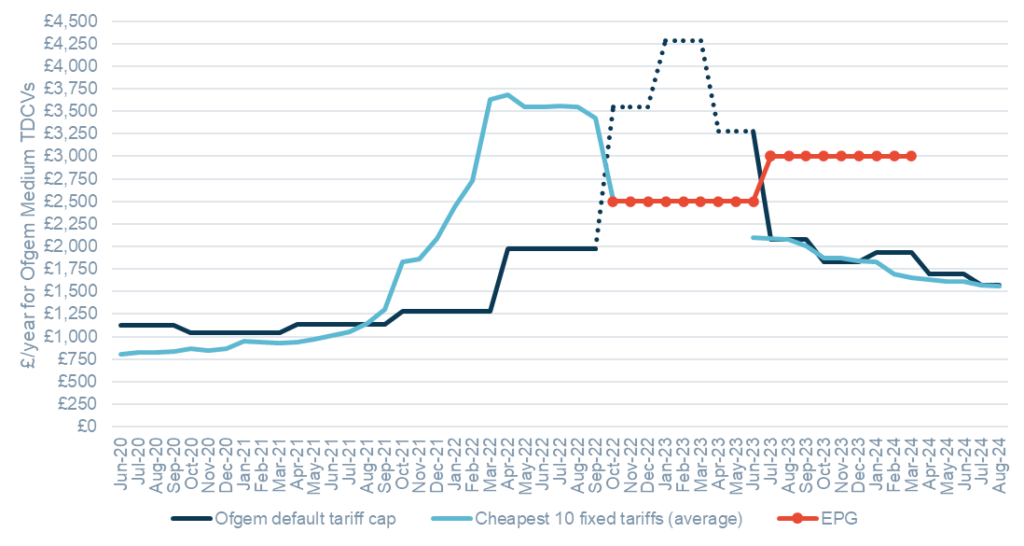Research firm Cornwall Insight has published its latest analysis of the UK domestic energy market, revealing that fixed-price tariffs are not saving consumers as much money as they once did.
Data from Cornwall Insight’s August Fixed Domestic Tariff Report shows that the average household only saves £5 each year by being on one of the cheapest fixed rate tariffs on the open market, compared to being on the energy price cap.
This represents a sharp drop-off in savings for fixed-price customers, who as recently as June 2024 could save an average of almost £80 each year by choosing a fixed rate tariff. These falling savings rates are being attributed to the forecasted price cap increase in October, which has seen many lower-priced fixed tariffs be pulled from the market.
Prior to the energy crisis, which began in 2022 following Russia’s invasion into Ukraine, savings of as between £100-300 each year for fixed price customers were standard. Since then, aside from a brief spike caused by unusually low wholesale prices at the start of 2024, average fixed-rate savings have yet to hit three figures again.
James Mabey, analyst at Cornwall Insight said: “For some time, people have been getting their hopes up about a return to significant fixed tariff savings. Unfortunately, the optimism may have been premature. Earlier this year, there were glimpses of savings in the hundreds of pounds, but fixed tariffs have since crept back up to around the same annual cost as the price cap, and the current £5 difference is unlikely to be enough to motivate most people to switch.
“Whether the fixed tariff market will improve is up for debate, but based on our data, it is unlikely we will see a return to consistent three figure savings anytime soon.”
Maintaining the BAT is a double-edged sword
Ofgem’s recent decision to maintain the Ban on Acquisition-only Tariffs (BAT)—which prevents suppliers from offering better rates to new customers—has been the subject of much discussion among analysts and energy industry insiders, who have differing views on its impact on energy prices overall.
Some argue that it may be stifling competition by discouraging many from switching energy suppliers regularly and thus keeping prices high. However, many in the industry feel that the BAT protects vulnerable customers and ensures that fair prices are accessible to all.
On this issue, Mabey notes: “The maintaining of the BAT a blow for households who actively engage in the energy market, as it could have led to higher introductory savings for those with the time and inclination to switch.
“On the other hand, lifting the ban could also have resulted in loyal customers being penalised, and vulnerable individuals, who may be less able to navigate the market, left with higher bills. Ultimately, there were always going to be winners and losers, no matter which direction Ofgem took.”






